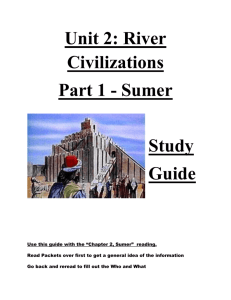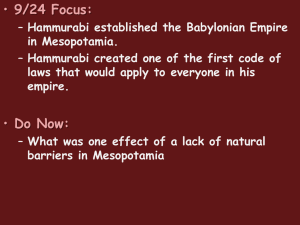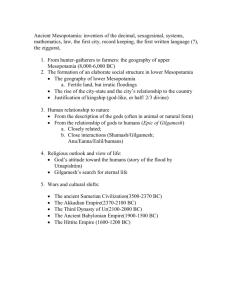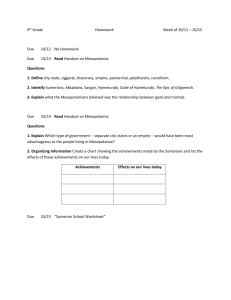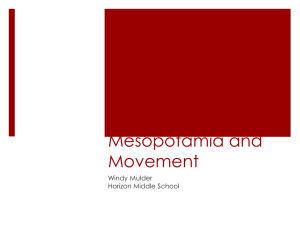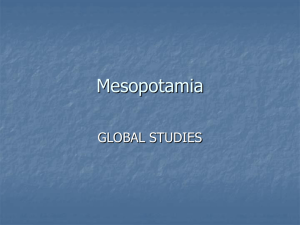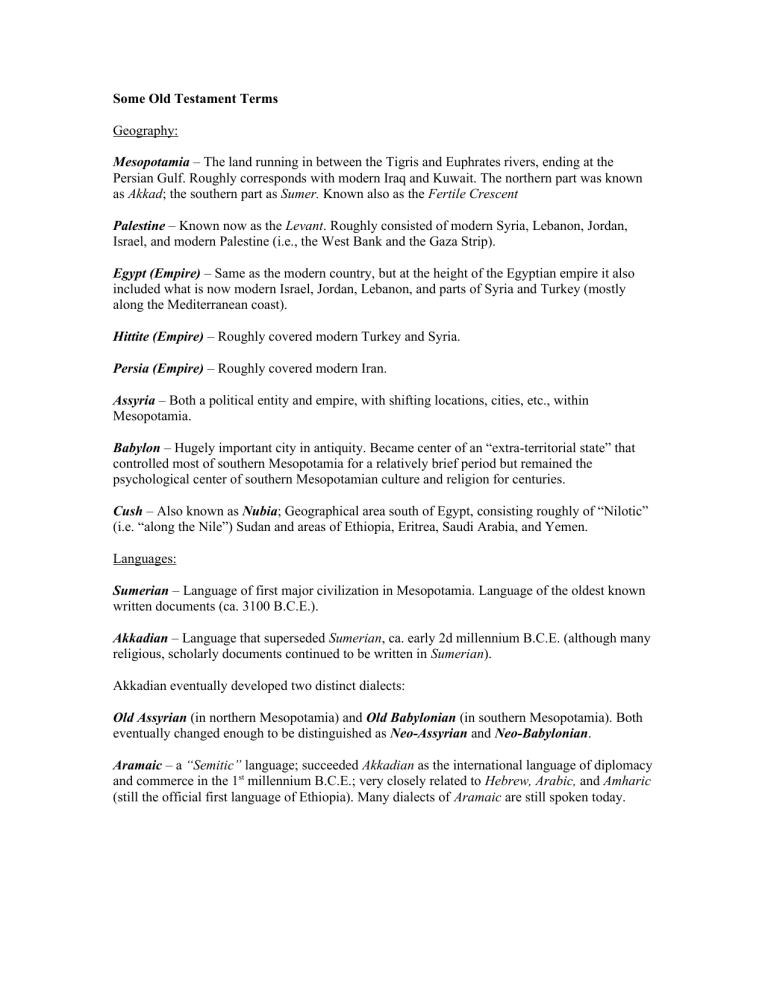
Some Old Testament Terms Geography: Mesopotamia – The land running in between the Tigris and Euphrates rivers, ending at the Persian Gulf. Roughly corresponds with modern Iraq and Kuwait. The northern part was known as Akkad; the southern part as Sumer. Known also as the Fertile Crescent Palestine – Known now as the Levant. Roughly consisted of modern Syria, Lebanon, Jordan, Israel, and modern Palestine (i.e., the West Bank and the Gaza Strip). Egypt (Empire) – Same as the modern country, but at the height of the Egyptian empire it also included what is now modern Israel, Jordan, Lebanon, and parts of Syria and Turkey (mostly along the Mediterranean coast). Hittite (Empire) – Roughly covered modern Turkey and Syria. Persia (Empire) – Roughly covered modern Iran. Assyria – Both a political entity and empire, with shifting locations, cities, etc., within Mesopotamia. Babylon – Hugely important city in antiquity. Became center of an “extra-territorial state” that controlled most of southern Mesopotamia for a relatively brief period but remained the psychological center of southern Mesopotamian culture and religion for centuries. Cush – Also known as Nubia; Geographical area south of Egypt, consisting roughly of “Nilotic” (i.e. “along the Nile”) Sudan and areas of Ethiopia, Eritrea, Saudi Arabia, and Yemen. Languages: Sumerian – Language of first major civilization in Mesopotamia. Language of the oldest known written documents (ca. 3100 B.C.E.). Akkadian – Language that superseded Sumerian, ca. early 2d millennium B.C.E. (although many religious, scholarly documents continued to be written in Sumerian). Akkadian eventually developed two distinct dialects: Old Assyrian (in northern Mesopotamia) and Old Babylonian (in southern Mesopotamia). Both eventually changed enough to be distinguished as Neo-Assyrian and Neo-Babylonian. Aramaic – a “Semitic” language; succeeded Akkadian as the international language of diplomacy and commerce in the 1st millennium B.C.E.; very closely related to Hebrew, Arabic, and Amharic (still the official first language of Ethiopia). Many dialects of Aramaic are still spoken today.
